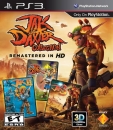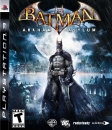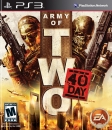If I was a betting man, I would bet that Microsoft would go USB Flash storage for next generation. This model comes with a lot of positives and few negatives, assuming a launch in 2012 or 2013.
POSITIVES
1) No Disc Drive required
- Removes roughly $35 COG from each system sold.
- Decreases size of system, saving money.
- Decreases complexity of system, thus decreasing failure rate.
2) Multiple games
With USB, gamers could plug in multiple games at once and not have to swap them out. This creates a more seemless gaming experience.
3) Larger games
If a game was released that needed more space than the default USB Flash supported, the studio could pay for a larger capacity Flash or produce 2. If multiple are produced, the gamer could still attach all of them to the system at once, thereby eliminating hot-swap requirements.
4) Accessories
This would enable Microsoft to sell another accessory that would basically be a fancy USB hub to attach even more games to the system.
5) Size
Using USB Flash would enable MS to make smaller boxes for the games. These boxes could be roughly the size of DS cases and thus enable retailers to fit more product on the shelf. In addition, storage and shipping costs would be reduced.
6) Speed
USB read speeds are substantially better, thereby reducing or removing load times in many games or enabling games to do more texture swapping for better graphics.
NEGATIVES
1) Cost
USB Flash drives would likely cost substantially more than Disc based media. Write-Once 16GB Flash Drives would likely cost in the range of $2 each to produce compared with about $0.35 for a DVD and about $0.55 for Blu-Ray.
2) Security
MS would likely have to include some sort of security chip on each USB Flash. This would add additional cost to each drive produced, probably around $0.30 each.
HOW COULD THIS WORK
Cost I see as the largest hurdle to overcome. Game developers would not want to have the extra costs of production added on and would probably revolt behind the scenes a bit.
MS would likely drop the royality by $2 per game produced. This would put their royality at about $3.5. The obvious downside here is that MS makes less money per game sold which is a huge negative for them
This would likely be offset by not reducing the price of each system sold as a result of the Disc Drive and size savings. Combined those would likely account for a solid $40 per system. Given that their attachrate is approximately 10:1 later in system life, MS would stand to break even on this tradeoff of extra profit per system sold and reduced royalties.
I would bet on MS making the default size 16GB, which would likely be more than enough for all next gen titles. This assertion is based in the fact that using MS' current compression technology, games are typically less than 7GB in size on the 360. These same titles usually come in around 10 - 12GB on PS3 without that technological edge. For games that are larger, MS could offer a 32/64GB flash or allow for multiple drives to be shipped in one case.
GOING FURTHER
Taking this concept a step further, MS could also set it up so that a complete game catalog could be available at retail even if the retailer did not have space to stock them on the shelves.
This would utilize a fairly cheap Kiosk system that was bound to the internet using something like ClearWire or other WiMax service. It would store images of every game ever released locally. Gamers could approach the system, buy a game, and have it written to a USB flash drive right there. More than likely this would just pull from their Games on Demand catalog.
To please retailers, MS would likely give a 20% or so cut for each game sold out of their store through a Kiosk.
Basically put, I don't think it is desirable or needed to include disc media next generation. Static storage has gotten big enough and cheap enough to seriously consider utilizing it again in primary consoles. The various cost savings and flexibility options seriously outweigh the negatives.



















































